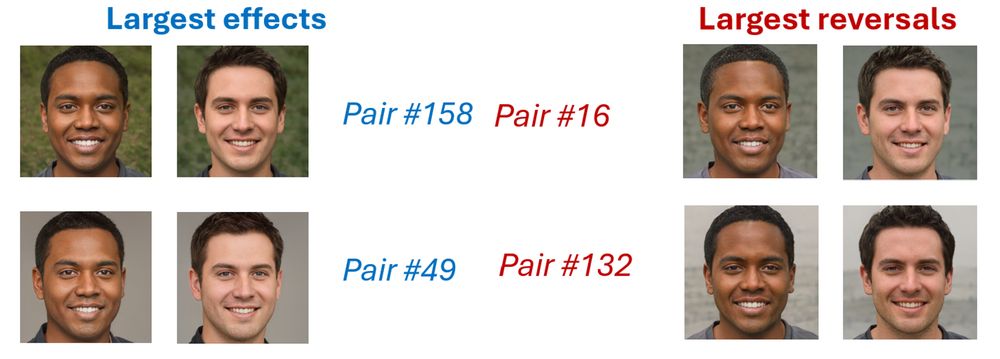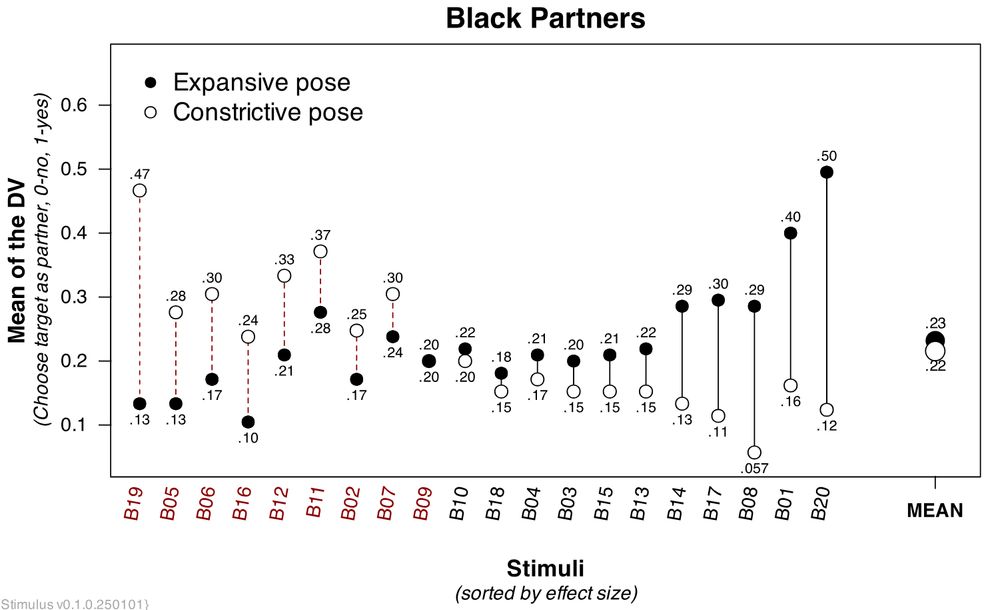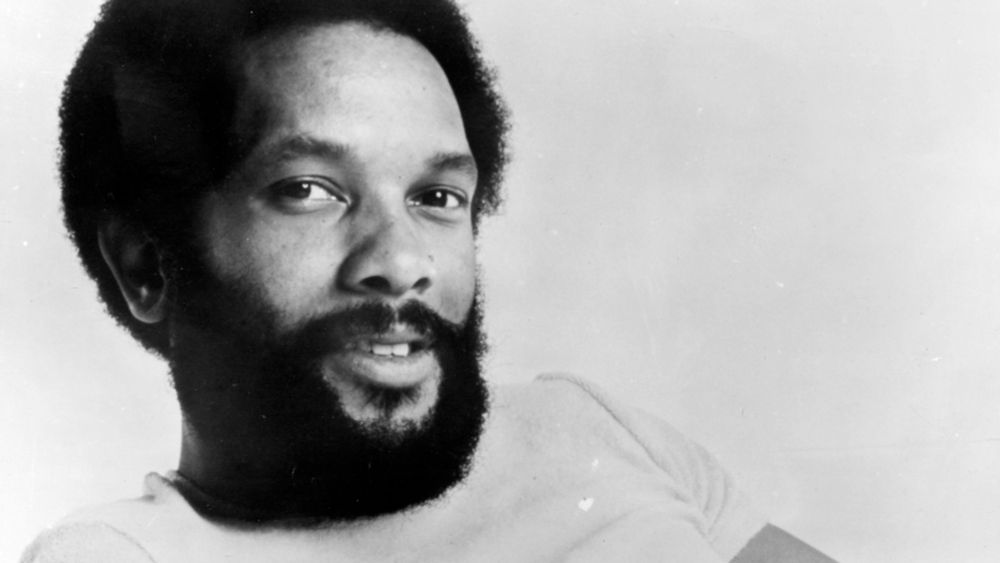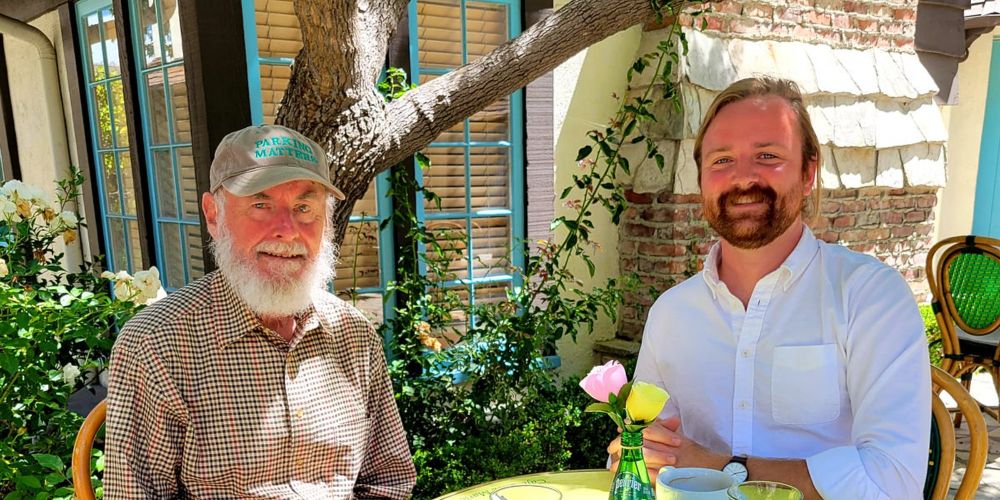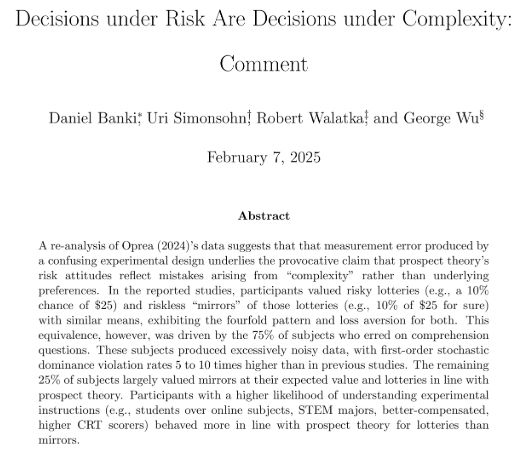Andres Montealegre
@andresm.bsky.social
660 followers
610 following
36 posts
Postdoc at Yale School of Management, interested in judgment and decision-making, research methods, and movies.
http://andres-montealegre.com/
Posts
Media
Videos
Starter Packs
Reposted by Andres Montealegre
Reposted by Andres Montealegre
Reposted by Andres Montealegre
Nick Huntington-Klein
@nickchk.com
· Jun 6
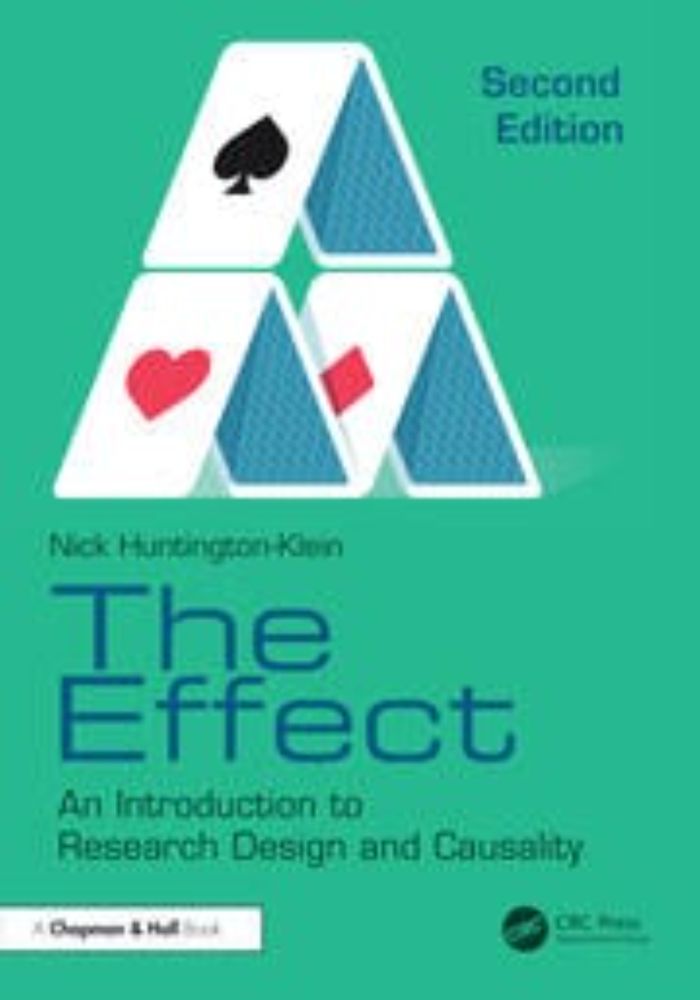
The Effect: An Introduction to Research Design and Causality
The Effect: An Introduction to Research Design and Causality, Second edition is an excellent teaching text about research design, specifically concerning research that uses observational data to make ...
www.routledge.com
Reposted by Andres Montealegre
Andres Montealegre
@andresm.bsky.social
· May 23
Reposted by Andres Montealegre
Reposted by Andres Montealegre
Data Colada
@datacolada.bsky.social
· Mar 14
[124] "Complexity": 75% of participants missed comprehension questions in AER paper critiquing Prospect Theory - Data Colada
Kahneman and Tversky’s (1979) “Prospect Theory” article is the most cited paper in the history of economics, and it won Kahneman the Nobel Prize in 2002. Among other things, it predicts that people ar...
datacolada.org
Reposted by Andres Montealegre
Reposted by Andres Montealegre
Data Colada
@datacolada.bsky.social
· Mar 5
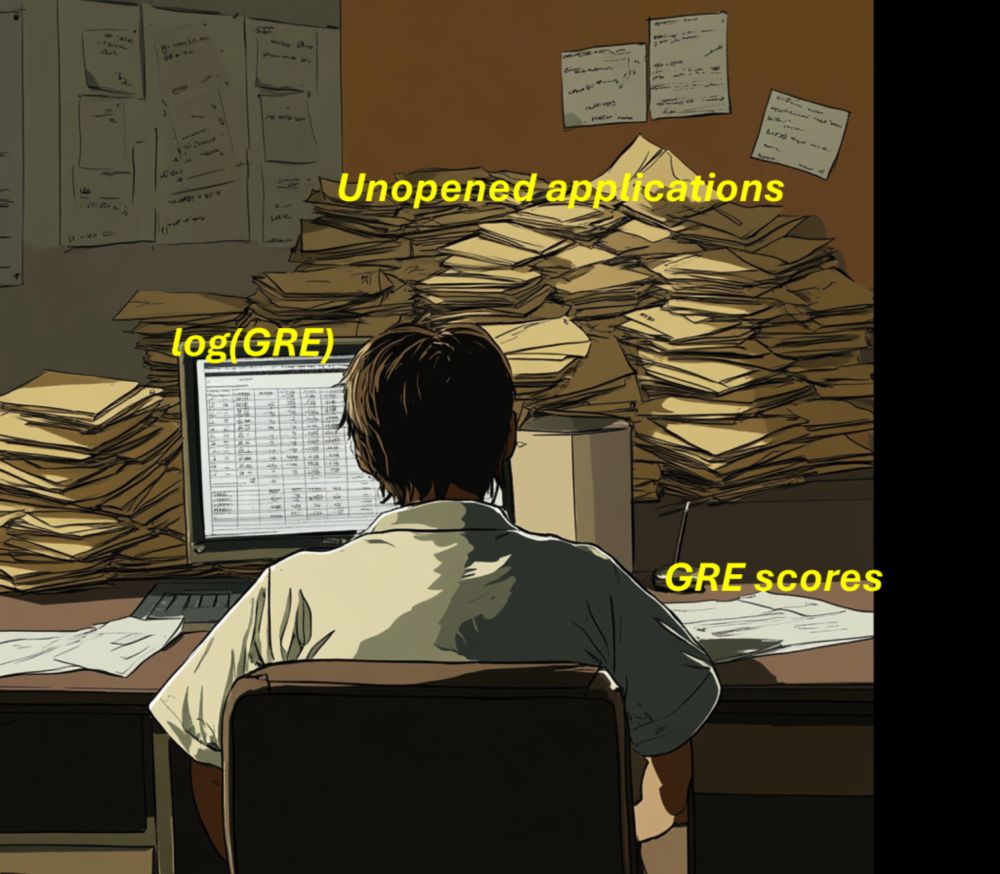
[123] Dear Political Scientists: The binning estimator violates ceteris paribus - Data Colada
This post delves into a disagreement I have with three prominent political scientists, Jens Hainmueller, Jonathan Mummolo, and Yiqing Xu (HMX), on a fundamental methodological question: how to analyze...
datacolada.org
Reposted by Andres Montealegre
Andres Montealegre
@andresm.bsky.social
· Feb 11

Data Organization in Spreadsheets
Spreadsheets are widely used software tools for data entry, storage, analysis, and visualization. Focusing on the data entry and storage aspects, this article offers practical recommendations for o...
www.tandfonline.com
Reposted by Andres Montealegre
Andres Montealegre
@andresm.bsky.social
· Jan 26

